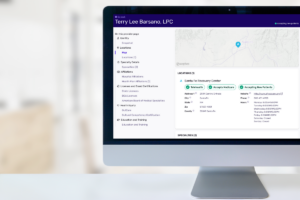The most impactful data vendors ensure top-quality data is being provided to their health plan clients. Data vendors can bring both value and collaboration to health plans’ business. A solid understanding of the vendor’s capabilities, methodology, and process can help you quickly build trust and maximize your ROI— or not.
Whether your health plan is currently working with a data vendor or hopes to do so in the future, these are the questions Veda’s data science team encourages you to talk to your partners about to get the most out of your data. Plus, we included Veda’s answers to the questions.

- How often is data being refreshed?
Provider data is not “set it and forget it.” Providers change facilities, offices move locations, phone numbers are updated, etc. Without consistent updates, there is a risk of data being inaccurate. What was once correct can quickly become void when a clinic moves next door.
VEDA’S ANSWER: Veda optimizes results for each provider every 24 hours.
- How do you perform entity resolution and resolve data conflicts?
Entity resolution is the foundation of all data processing, and poor entity resolution can affect results for locations, network adequacy, and provider details. One challenge in provider data is that the information about a provider is not static, and evolves over time—location, phone, specialty, etc.
VEDA’S ANSWER: Veda’s patented technology performs entity resolution in a way that specifically accounts for this data drift over time.

- What sources are being used?
Knowing where source data comes from will help ensure you’re sourcing everything you need and nothing you don’t. Rather than crawling some websites for information that may already be inaccurate, using many sources means the data can be cross-referenced for quality.
VEDA’S ANSWER: Veda curates data from over 300,000 unique sources (including our proprietary data and multiple credentialing sources, such as NPPES, CMS, DEA, and State Licensing Boards).
- How many active providers are included in data sets?
Data sets should include active providers. Sure, having more providers and large numbers in a roster seems like a win but if the roster is full of inactive or even deceased providers you’re risking a poor member experience. Garbage in, garbage out.
VEDA’S ANSWER: Organizations using Veda’s provider data can access profiles of every active provider in the U.S.—over 3.5 million.
- How do you measure the performance of your data model?
Once you are certain you’re measuring the right outputs, identify the key metrics that support your accuracy KPIs: Aspects such as frequency of measurement, sample sizes, methodology, etc.
VEDA’S ANSWER: Veda’s solution accurately separates data into training and test sets for statistical modeling. This is essential to avoid overfitting and production performance “surprises” from the data.

- How is success defined and how is it measured?
Are you measuring your performance like your patients and regulators are? We believe everyone needs to think more rigorously about what “correct” provider data means. Attested data is not the same as correct data.
VEDA’S ANSWER: The best measurement for accurate provider data? Patients should be able to make an appointment with a provider, using the data available to them, on the first try.
Ready to partner with a data quality vendor who is the authority on accuracy? Contact Veda.



